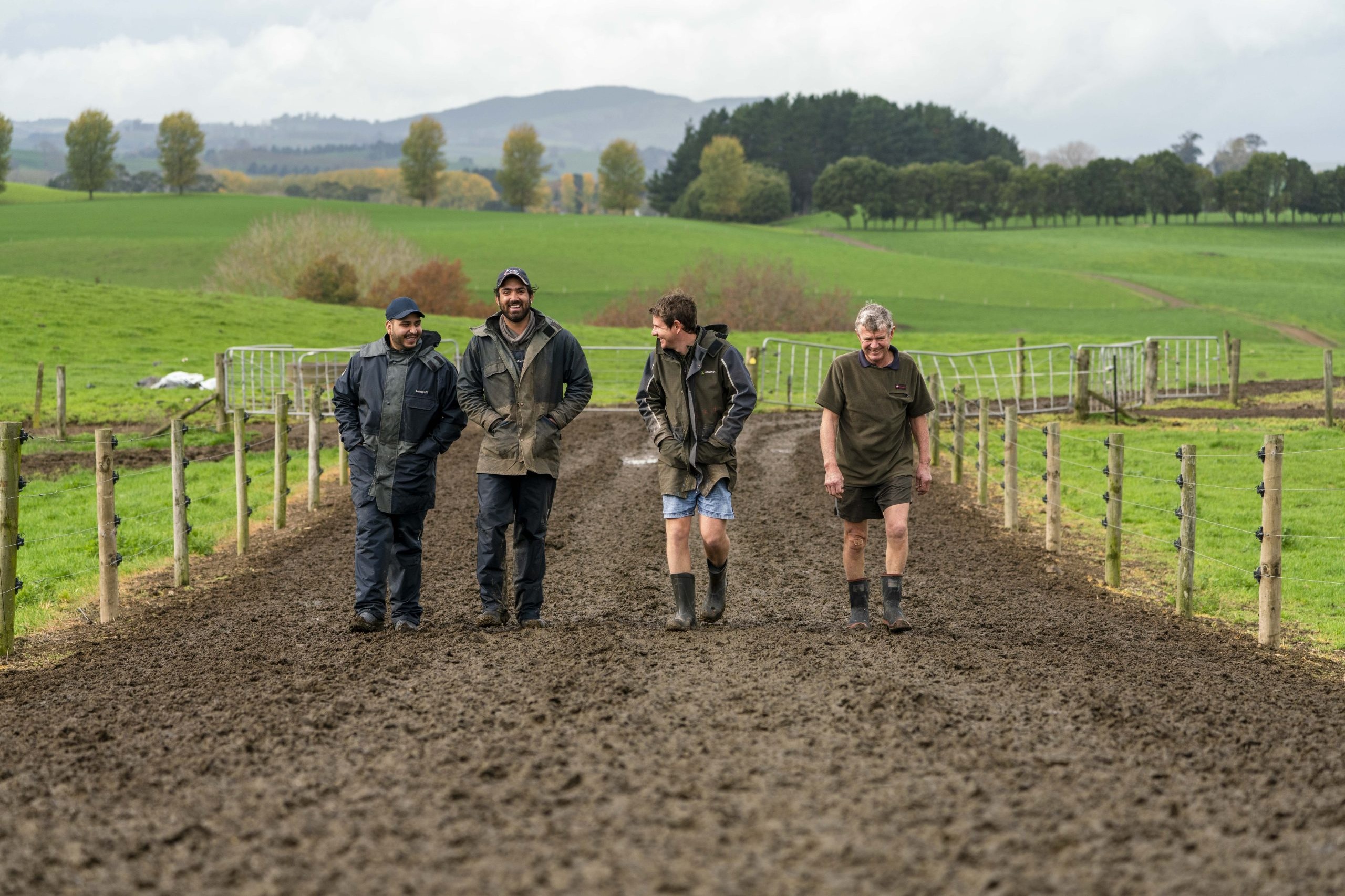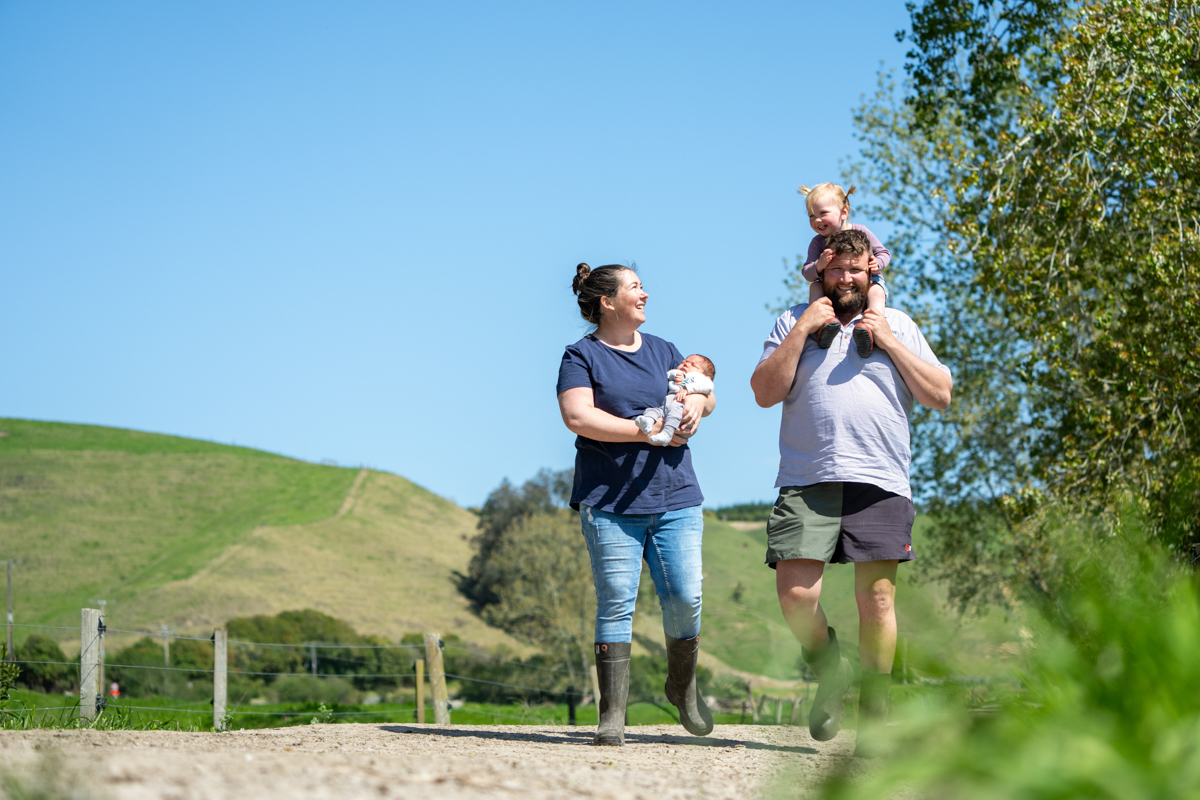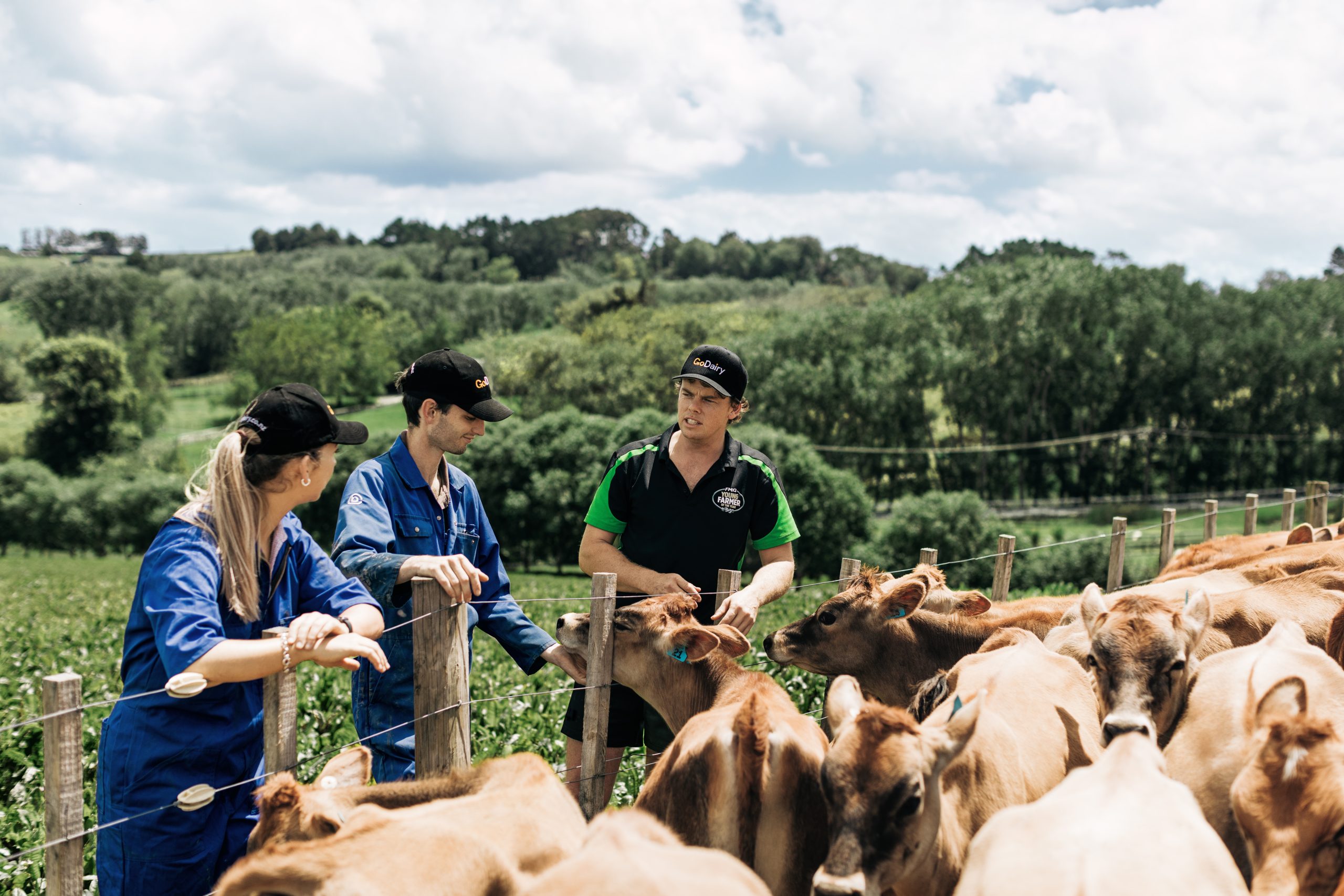Former dairy worker Jacob Kambuta has studied the challenges facing migrants, and is about to complete his doctorate on the subject. Anne Lee reports.
Little did Jacob Kambuta know just how much his life would change when, unemployed, he happened upon a small advertisement for dairy staff in New Zealand.
Zambian-born, he was 27 at the time, desperately seeking work in South Africa, travelling in and out of Botswana to renew his visa each month.
“Never in a million years would I have even dreamed I’d be here now – never. Sometimes I still can’t believe it – even after 16 years.”
It’s an understandable sentiment because here he is – a world away in every sense – now an NZ citizen, married to a Kiwi, Rebecca, father to their two-year-old son, Elijah and about to complete his PhD at Lincoln University.
And it’s a PhD he is eminently qualified to complete as it explores factors that contribute to the retention and integration of migrant farm staff.
Jacob’s been that guy – the migrant who turned up in NZ with little, having come from a world and life experience few of us can even imagine.
To get a glimpse of that life you need to go right back to Jacob’s childhood days growing up in Luanshya, central Zambia, and his story of how he came here in the first place.
‘I would work with them on the plots and take crops up to 15km in the wheelbarrow to where they could be picked up and taken to the big markets in Lusaka.’
His mother and step father were farmers, growing crops such as sweet potato, maize, peanuts, pumpkins and beans on plots up to 10-15km apart.
Travelling between them was on foot, often pushing wheelbarrows.
“I would work with them on the plots and take crops up to 15km in the wheelbarrow to where they could be picked up and taken to the big markets in Lusaka.”
Getting to and from school also meant walking big distances through fields, across streams and through bush.
It’s little wonder he failed his form two year and spent a year repeating it before he could move on to high school – a 20km walk away.
By 1993, though, his mother said they could no longer afford the school fees, books and uniform.
“I had to get a job if I wanted to carry on. Lucky for me a woman who ran a poultry farm said she would pay for those costs as long as I worked on her farm.
“So, I would work there from 7am till 10am and then walk the 10km home. Then I’d have to take water containers on a wheelbarrow another kilometre away to collect water for the house before I could wash and get changed and walk to school.
“I went to school from 3pm-6pm and then walked home in the dark through the bush and over fields. We had no electricity so if I had to study I would use a diesel lamp,” Jacob says with an infectious smile.
He recounts seeing people driving in cars and wondering what they did for a job and he knew that getting an education and finishing school would increase his chances of bettering his situation.
So he persevered and finished school in 1995 with three subjects – English, geography and science, giving him a general certificate of education.
The following year he spotted a newspaper advertisement looking for people to do an agricultural course.
“It was a newspaper that went all over Zambia – so seven million people might see it – but they only wanted 40 students.”
Jacob says his sister-in-law helped him get an envelope and stamp so he could apply.
He was accepted, and his sister-in-law and a friend paid the fees.
He passed with merit and when he returned home, the poultry farmer he’d worked for gave him vegetable seeds and chicken dung so he could start his own farming enterprise on a hectare of land owned by the forestry department but unused.
Drawing on his new-found knowledge, he set up an irrigation channel to water the crops.
“But I had to stay in fields at night with a machete to protect the crops from animals.”
Soon after he took up a job for a Catholic convent which needed someone to supervise their farms, the produce from which fed the HIV/AIDS orphans and disabled children under the nuns’ care.
“I stayed there for two years and the work was good, but it was hard seeing those children with AIDS. It was awful seeing them get so sick.”
The disease ravaged Zambia and took two of his siblings.
In 2001 he set out for South Africa to find better work but faced visa difficulties that meant he had to leave and reapply every month.
Family friends put him up and their friends took him in during his monthly visits to Botswana.
It was during his job searches that he saw the ad for NZ dairy work.
“It said you could apply in writing and online. I had no idea what online meant.”
A friend took him to an internet café and he sent off his application to an immigration agent.
But he had no money for application fees or work visas, let alone airline tickets.
A street kid he talked to, though, changed his life.
He had US$70 that he didn’t really know what to do with because it was in US currency, so he gave it to Jacob.
Jacob says he had visa paperwork completed on time but still he couldn’t afford the airfare.
“Then one day the people I stayed with in Botswana said – here, we are going to buy you a one-way ticket to New Zealand. I couldn’t believe their kindness.”
The journey was mind-blowing. He’d never been on a plane or worked out how to navigate his way around an airport.
“I had US$10 and a laptop bag (with no computer) that I put my spare clothes in and travel documents – that was it.”
Again, a stranger he befriended unloaded some currency on him they didn’t want – this time NZ$20 but when he was in transit in Singapore, Singapore immigration warned him the airline might not let him aboard the flight to NZ because he had so little to his name.
“I prayed and prayed. New Zealand was my destiny. God had taken me out of Africa and I was going to New Zealand, I knew he wouldn’t abandon me there in Singapore.”
He was allowed on the plane and, with the help of backpackers, eventually made it to Warkworth to meet his recruitment agent.
From there he spent four years working on dairy farms around the North Island (Waikato and Bay of Plenty) and South Island (Southland).
“It was a huge culture shock to start with. I didn’t know what the farmer was talking about sometimes.”
In 2005 he decided to leave dairying.
The work, while hard, had been good but in his last job there was little time off on his three weeks on and two days off roster and there was no opportunity to attend training such as Primary ITO, instead it was done through correspondence.
But having already gained residency he achieved NZ citizenship and decided he would try and better himself through education again – this time at the University of Otago.
He completed a foundation course, then having embarked on health sciences decided to change his degree to social work and community development.
All the while he held down a part-time job and sent money home to his parents.
At Otago he met Rebecca who was studying media and film – in which she went on to earn a PhD.
It’s then that Jacob returned to dairying part-time, embarking on a masters’ project looking at human rights and the rights of NZ migrant dairy workers.
That study then led him to Fudan University to learn Chinese language and culture in 2014, then to Lincoln University in 2015 where he took up his PhD study on retention of migrant dairy staff and what helps them integrate into the community.
He’s due to finish that in the next month and has a post-doctoral position at Lincoln, so we can expect to see more from Jacob’s insights and research featuring in Dairy Exporter in coming years.
He’s promised to share his PhD findings with us soon.
“I still have to pinch myself sometimes to believe I’m here and this is my life now.’
Jacob hopes that by sharing his story, farm employers will have a little more insight into just how big the life change is for many migrant staff and more empathy with their situation.
Jacob’s masters study
Jacob Kambuta interviewed six migrant dairy staff and two spouses of migrant dairy staff back in 2014.
He wanted to find out what their experiences were on New Zealand farms and if they were vulnerable to similar issues found in other research into migrant staff both in NZ and overseas.
Several major concerns were identified including: wage disparities, working conditions (in particular, excessive working hours), lack of support and isolation.
Jacob’s study found there was a level of vulnerability in dairy farm migrants’ situations which created obstacles in addressing the issues.
“This vulnerability can be due to:
- a lack of clarity about the status of their work permit and a lack of access to any control over their permit;
- fear of being branded as troublemakers making it harder to transfer to a new job and/or fear of dismissal that could lead to being sent home;
- lastly, isolation and lack of access to support organisations.”
Isolation was exacerbated by difficulties with transport. If they didn’t have a driver’s licence, couldn’t afford their own car or have easy access to a car they were restricted in their ability to get off-farm, meet other migrant staff or even get small personal jobs done in town.
Language, too, was often a barrier not just in the obvious issues of not understanding what’s being said easily or understanding colloquial language but, for some, frequent swearing was offensive.
While willing to work hard, some migrant staff found the pay and conditions did not meet the expectations they had when they were recruited, given the long hours and limited days off.
Jacob’s masters thesis can be obtained via the University of Otago.





